1975: Shirley Caesar's Breakthrough Year
How did a country song about a mother's unconditional love make a difference in this gospel icon's career?
Oprah Winfrey called her “The Mother of Gospel Music,” which is a bit hyperbolic, but what is undeniable is that, for decades, Shirley Caesar has been one of the most recognizable faces of gospel music in the mainstream.
Gospel lovers worldwide first saw her as a stick of dynamite in Albertina Walker’s Famous Caravans. They fell in love with the charismatic young woman who had been on the gospel highway since she was a child, making her first recordings as a regional child star known as Baby Shirley.
With The Caravans, she made gospel history with hits like “I Won’t Be Back,” “Hallelujah ‘Tis Done,” “Choose Ye This Day,” and “I Feel Good,” emerging as one of the group’s many stars. She did it all—she sang, she preached, and, at a time when gospel artists on television presented with a stoic regality, unabashedly gave vent to the spirit.
When she stepped out as a solo artist and evangelist in 1967, signing with HOB Records, she did so with the bravado of James Cleveland, recording not with a group, but with the Institutional Radio Choir of Brooklyn, New York. As she saw the popularity of groups declining in her field, she wisely changed with the times. She forged ahead with choirs, telling gospel historian Anthony Heilbut, “Everybody’s getting on the choir bandwagon and I don’t intend to be left behind.” Her debut album, I’ll Go, scored two major hits: one for her (“Don’t Be Afraid”) and one for the choir (“Stretch Out”).
She reunited with Institutional for her sophomore album, the masterpiece, My Testimony. She moved on to record almost a dozen albums over the next seven years with the Thompson Community Singers, New York’s famed White Rock Baptist Church’s choir, and her own Caesar Singers, winning a Grammy Award with her first nomination for 1971’s “Put Your Hand in the Hand” (Press inaccurately reported at the time that she was the first Black gospel singer to win a Grammy, but that was Mahalia Jackson in 1962).
Caesar’s recordings for HOB, produced by the underrated John Bowden, blended congregational songs (contemporized just enough to pacify traditionalists and young people), covers of songs by her peers (like Andraé Crouch, Cassietta George and originals that she or her singers composed. 1974’s Millennial Reign, however, found Caesar stretching out. The arrangements were more polished, the rhythm section more synchronized, and she incorporated strings into her production for the first time, setting her sights on another level of professionalism in her presentation.
While she was presented with offers to record secular music, she maintained her commitment to the gospel field, telling The Charlotte Observer that year, “My religious background is the main reason I stayed with it. I believe in what I sing about. You see, my whole life is wrapped, tied and tangled up in the church.” In an interview with Raleigh’s News and Observer that same year, she added, “When you don’t have something on the inside to make you stick, you might as well change over anyway. I always say—if you don’t stand for something, you’ll fall for anything.” She went on to criticize Aretha Franklin’s performance at Mahalia Jackson’s funeral. “I went to Mahalia Jackson’s funeral three years ago and do you know who they had singing there? Aretha Franklin. There was a woman dead who did not sell out, so why should they get a woman who had sold out to sing?”
The News and Observer, however, also noted Caesar’s penchant for business, commenting, “She would like to see another gold record on her living room wall.”
When 1975 rolled in, Caesar returned to the studio with producer John Bowden to produce three albums that would see release in the new year. She, Bowden and R&B singer-arranger-producer Jeff Lane (of Brass Construction) came together to produce a cover of “No Charge,” a country song about a mother’s unconditional love. It was written by Harlan Howard and was a #1 country hit for Melba Montgomery in 1974, even taking her to the Top 40 of Billboard’s Hot 100. Exactly how the song came to Caesar isn’t known, but the collaboration between her, Bowden and Lane would create a breakthrough moment in this already legendary artist’s career.
The song’s theme was certainly not unfamiliar terrain for Caesar. Her 1969 recording “Don’t Drive Your Mama Away” had earned a gold record and the sermonette’s critique of younger people looking down on their elders had endeared the evangelist to older listeners. Mother as a focal point was real for her. Her own mother had raised her and her eleven siblings after her father died when Caesar was six years old, and, by 1975, she was taking care of her mother, by then a semi-invalid.
“No Charge” took Caesar from gospel radio to secular radio, peaking at #40 on Billboard’s Hot Soul Singles chart, and even landed in the lower regions of the Hot 100, peaking at #91. It also did the job of further establishing Caesar as one of the few gospel artists recognized as a force outside of the gospel music arena, picking up the mantle carried by Mahalia Jackson. The moniker ‘The Queen of Gospel Music,” which had first been attached to Caesar in the early 70s, became more heavily reinforced.
No Charge, the wisely titled album from which the single came, moved like a well-oiled machine. She reimagined “To Be Like Jesus,” “No Never Alone” and “Since I’ve Been Born Again” from The Caravans catalog, congregational songs like “Oh Lord, I Want You To Help Me” (which she recently pulled on at R&B singer Angie Stone’s funeral) and “Walk With Me, Lord,” and she nodded at The Consolers of “Give Me My Flowers” fame with “How Long Has It Been Since You’ve Been Home,” which also bore the country influence of the album’s title track.
“Stand the Storm” most indicates what distinguished (and continues to distinguish) Caesar from other gospel artists. While she was undoubtedly evangelistic in her approach, she was also egalitarian in her values. While she certainly expressed the necessity of faith for survival, she understood the importance of affirming her listeners from all walks: “I’m here to tell you ‘you can make it.’ You can make it if you try. You may be black or white, you can stand right now and tell the world ‘I am somebody,’” she adlibbed at the end of the track.
No Charge climbed to the top of Billboard’s Best-Selling Gospel LPs chart, surging ahead of no less than five other James Cleveland releases (including his collaboration with the Charles Fold Singers, Jesus Is The Best Thing That Ever Happened To Me, and The Harold Smith Majestics, Lord Help Me To Hold Out), Andraé Crouch & The Disciples Take Me Back, and The Gospel Keynotes’ Reach Out.
LISTEN TO NO CHARGE HERE
Later that year, HOB released a follow-up album, Be Careful of the Stones You Throw. Caesar’s convergence of country and gospel went deeper as she tackled the album’s title song, popularized by Hank Williams in the early sixties. She went further with Larry Gatlin’s “Help Me,” (recorded the same year by former Caravan Inez Andrews on This Is Not The First Time I’ve Been Last) and the message song, “A Man Called King Heroin,” written by Jane Hill. Caesar reflected on these songs in a 1984 interview with Tennessean writer Robert Oermann, “I would love to record an all-country album because it’s so real. It tells a definite story.” She continued, “I found that it brought about a family awareness when I did those. Many young people who had been disobedient to their parents listened. The ministry isn’t in the pulpit or in the street. It’s in the home. I originally recorded my ‘King Heroin’ in 1974. I think maybe I should re-cut it. Now is the time for it with all these cocaine wars going on.”
Be Careful also produced one of Caesar’s most enduring gospel hits, the self-composed “The World Didn’t Give It To Me.” The song’s chemistry is intricate: a piano-driven rhythm section offset by handclaps and multiple tambourines, a string section perfectly placed in the mix with the choir backing Caesar. Throughout the song, The Caesar Singers ad-lib around Caesar’s lead vocal. The mix, by James Cordon, Jr., draws all of these varied elements out without one distracting from the other. It’s worth noting that Bill and Gloria Gaither composed a song called “The World Didn’t Give It To Me” just two years later that it’s hard to imagine was not inspired by Caesar’s composition.
The album also finds Caesar revisiting two more of her Caravans recordings: “I Find No Fault” and “Jesus, I’ll Never Forget,” both of which are driven harder than they were the first time around. Caesar’s ability to breathe new life into material that might have been old hat to her by this time in her career is a testament to her deep love of her craft and commitment to the message.
LISTEN TO BE CAREFUL OF THE STONES YOU THROW HERE
Before the year was out, HOB released a third album that presented Caesar in yet another light. Go Take a Bath was one of her more popular sermons as a travelling evangelist, and HOB issued it to close out this banner year in their most successful artist’s career. The sermon would be her last release of new material for the label, closing out a nearly decade-long affiliation that laid the groundwork for a million-dollar contract with Roadshow Records in 1977.
These three releases in 1975 were the springboard from which the next chapter of Caesar’s career unfolded. After two underrated albums for Roadshow that shocked some listeners with their R&B/gospel fusion, she signed with Word Records in 1980 and cultivated a blending of gospel and contemporary Christian music before returning to a more decidedly traditional sound with 1988’s Live…in Chicago (which reunited her with Milton Brunson’s Thompson Community Singers). Still, she’s continued to surprise listeners by jumping out of the box—even rapping on her Grammy-nominated collaboration with contemporary gospel innovator Tonex (now B. Slade) on 2005’s “I Know the Truth.”
She remained committed to social justice on record and in real life. She served on Durham’s City Council for four years and in addition to pastoring Mt. Calvary Holy Church in Raleigh-Durham, she formed Outreach Ministries, a mechanism through which she has provided food, clothing, and resources to those in need. “I don’t like to give a person a fish dinner,” she explained to reporter Patricia Merritt in 1992. “I like to give them the pole and the worms and the bucket. I like to give them a skill so they can go out and earn a living. I try to teach them a sense of responsibility and try to give them some integrity. My mother was my main inspiration. She taught me responsibility. She taught me that if I give, God would give back to me.”
Coming in June
I am excited to share about this exciting new SoulMusic Records (SMR) release that collects Dionne Warwick’s iconic recordings with Scepter Records and adds a staggering 60 bonus tracks--16 of which are previously unreleased--on this collection that totals 12 discs. Make It Easy On Yourself: The Scepter Recordings, 1962-1971 will be released via Cherry Red Records on June 27th!
It was an honor to write an essay for this project about Ms. Warwick's first gospel album, The Magic of Believing, an album that carries great significance in the gospel music story. Thank you Joe Marchese and David Nathan for the opportunity to contribute to this historic project.
You can pre-order this gorgeous box set by clicking here.
Church of the Good Groove Playlist
Don’t miss my latest curation for SoulandJazz.com!
Listen and read about this month’s playlist in last week’s post.
Church of the Good Groove: The March Edition/Bob Bailey Reissue News!
God's Music Is My Life is a reader-supported publication. To receive new posts and support my work, consider becoming a free or paid subscriber.

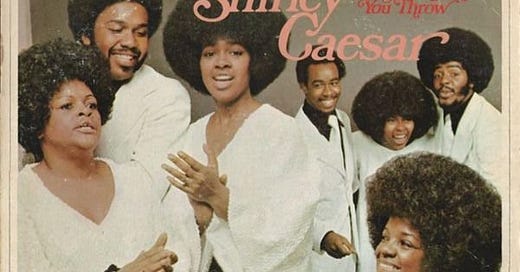


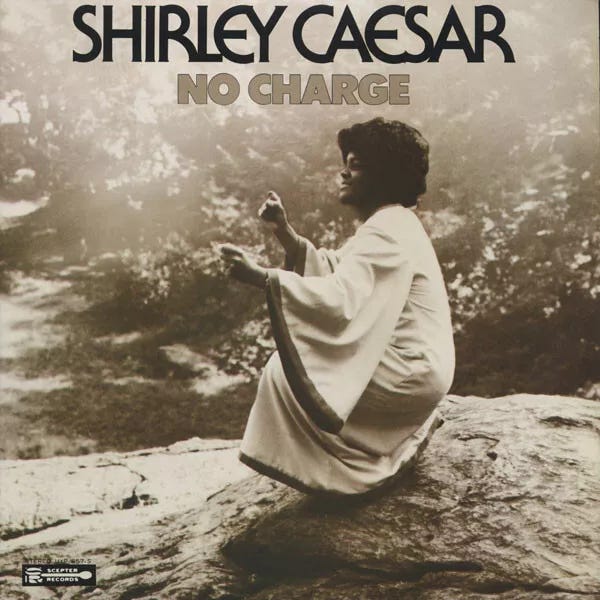

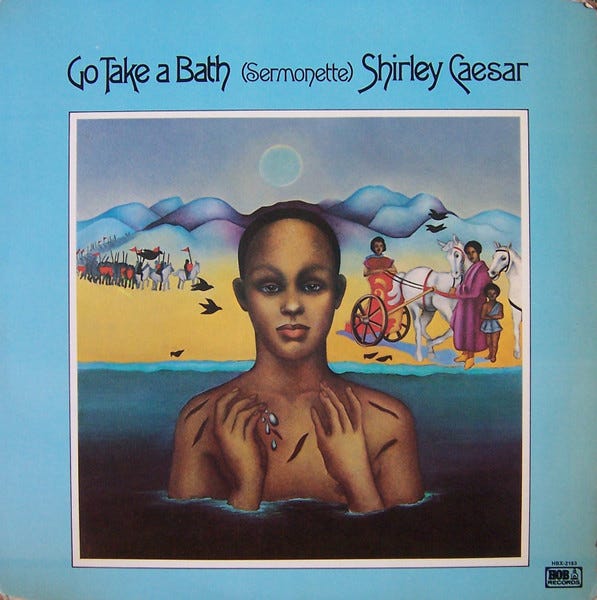
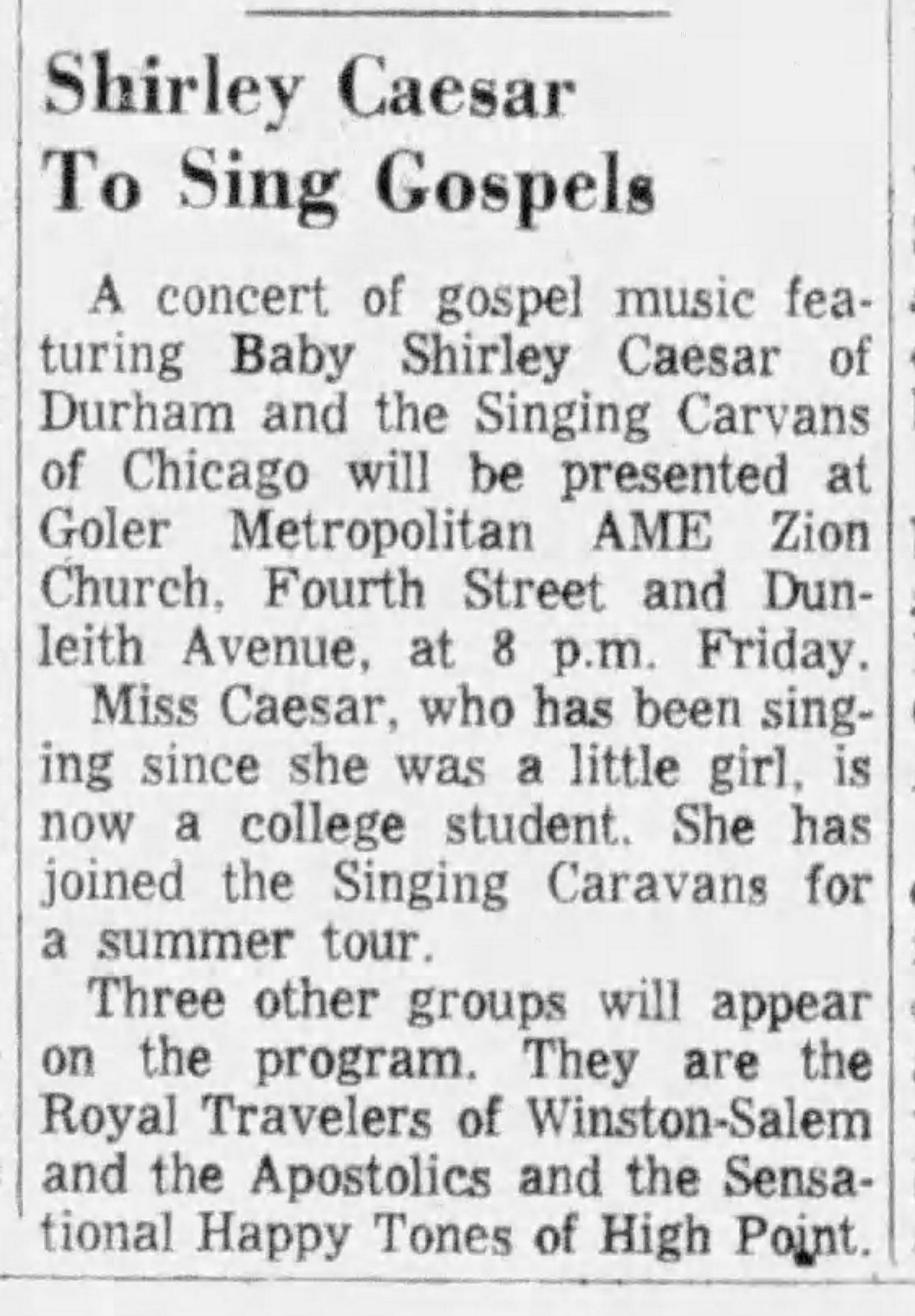
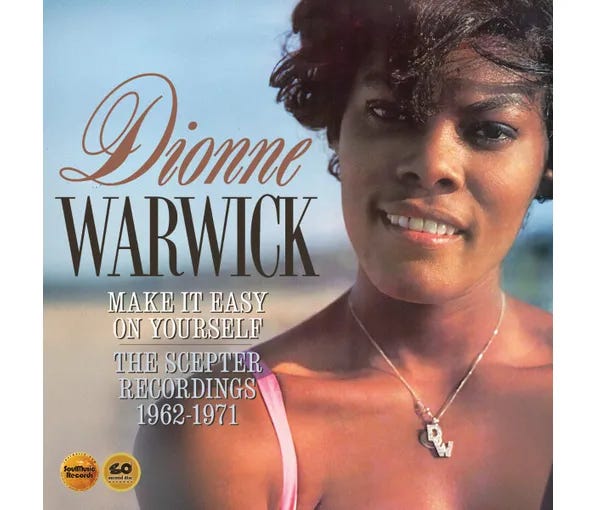
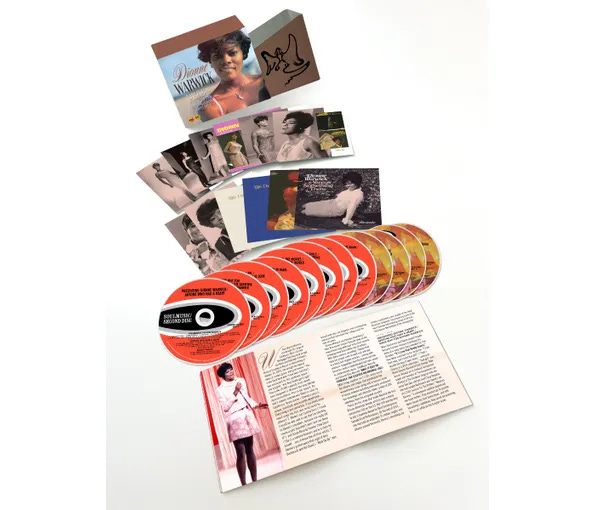
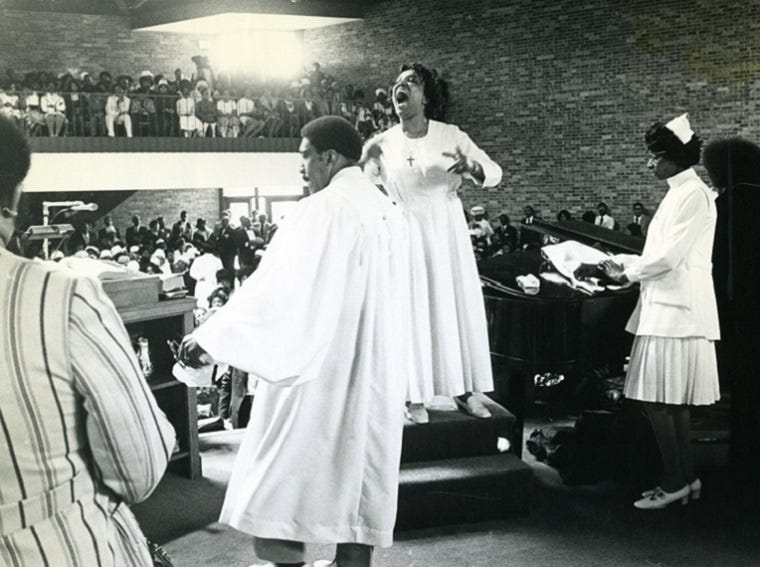
"I know the truth!" Listening! I love being treated to so much truth about the wide-ranging gifts of Shirley Caesar. She can rap!
this is such an amazing edition of your newsletter. thank you.